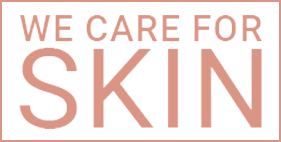Acne is a prevalent skin condition among people of all races and ages, although it is more common in teens and young adults (NIAMS, 2020). It is wherein the pores of one’s skin get blocked by hair, bacteria, dead skin cells, or sebum, an oily waxy substance produced by the body’s sebaceous glands, bacteria, and inflammation.
These blockages are primarily the culprit for whiteheads, blackheads, nodules, and other pimple types. But this is not an exhaustive list of causes. Mainly, in women adults, hormonal imbalances and fluctuations during the menstrual cycle can also contribute to acne, while stress, hormonal contraceptives, and smoking are considered risk factors. Some studies also suggest that women adults are four times more likely to experience acne than men. (Ansell, 2021)
Acne directly affects eighty percent of Americans at least once during their lives. Twenty percent of them have severe acne, which could lead to permanent physical and mental scarring. In other words, even a successful acne battle can leave you with acne scars and emotional and psychological trauma. Given that acne can result in such feelings and experiences, it is not a surprise that researchers have found acne to develop depression and anxiety among people. In Patient.Info (2018), it was revealed that people with acne had an increased risk of developing major depression. Because acne is a visible skin condition, it can certainly damage one’s confidence, self-esteem, self-worth, and social skills.
Acne can also become a hindrance in the workplace. In AA Dermatology (2018), it was revealed that acne, alongside several other common conditions, had been linked to adverse outcomes in the job market. A study from the University of Houston and Rice University found that acne breakouts and scars can distract the interviewer in a job interview leading to a negative turnout. This means that the working and professional adolescents and adults exposed to various social functions and have to project themselves in the conduct of their jobs can jeopardize their mental health because of an experience with acne. The content of one’s presentations in meetings and webinars is not the only thing people focus on these days. They have their eyes on the presenter, too, from the clothes he wears to the texture of his skin. Therefore, aside from your slides, your overall look, including your skin and teeth, is observed at a distance. Disapproval of others towards these can lead to a negative experience which can dampen someone’s self-conception.
Additionally, adults can also be exposed to or are prone to having work-related stress. Although it may not directly cause acne, other contributing factors like depression and anxiety may worsen and aggravate inflammatory responses. Researchers shed light on the fact that acne healing is slowed down when a person is under stress. Slower healing assures that pimples stay longer and are even more susceptible to progress in terms of severity.
Also, according to Health Line (2019), when a person is anxious or depressed, their interpretation of their skin can change drastically. A simple zit can be a massive deal as acne may attach too much weight to their condition and amplify negative feelings. They may also Even refrain from attending social events and retreat from interactions due to lowered self-outlook. Indeed, having acne can alter one’s perception of self. So, what can be done to avoid further mental health strains?
1. Use non-comedogenic products only. Non-comedogenic means that a product contains ingredients that will neither block nor clog the pores of your facial skin. This is an excellent option for those who have acne-prone, impure, or combination skin types. Products that do not clog your pores will help in reducing the chances of developing pimples.
2. Learn ways to achieve holistic health. Holistic health is an approach to life that takes not of the multidimensional aspects of wellness. It encourages individuals to recognize the whole person: physically, mentally, emotionally, intellectually, and spiritually and how these are interrelated to each other.
3. Try facial mapping. Dullness, luster, texture, breakouts, and where they occur on the face can serve as clues to help give a deeper understanding of the overall health of your skin. Face mapping is an incredibly beneficial tool for people dealing with acne, so they can gauge their skin’s overall health so that a plan of remedy can be developed and know the frequency and severity of the condition — whether they are consistent breakouts or sporadic.
4. Get enough sleep. Sleep deprivation causes stress in the body and when this happens, a spike in cortisol occurs. This will lead to inflammation and increased in sebum production. Always remember that sleep is one of the key factors to youthful and vibrant skin.
5. Visit your dermatologist regularly. A board-certified dermatologist will help diagnose and treat a wide variety of skin, hair, and nail-related conditions. These doctors always know what keys and buttons to press through procedures, treatments, and medicines to help treat specific skin conditions and improve the appearance of your skin.
Article submitted by Katie Pierce
Article Reviewed by Dr. Zharlah G. Flores, MD, FPDS


